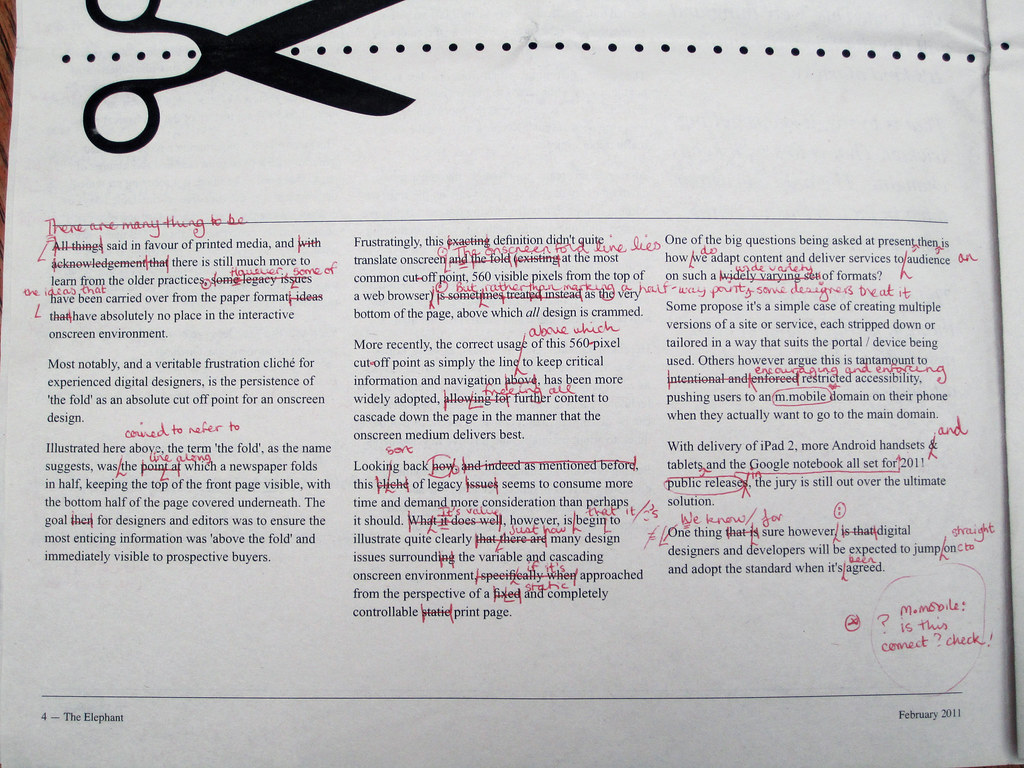NowComment Advantages for Peer Review

Peer review, whether formal or informal, is a very common NowComment application. Reviewing documents online offers many significant advantages over marking up paper copies:
-
Overcomes Physical Page Constraints
Reviewers want to make their comments in-context with the corresponding part of the document (rather than on a separate paper), which for a physical page means comments in the margins. But that space if very limited, and the need to drastically prune one's prose; comments are too often left cryptic from over-compression, and more often than not the reviewer isn't passing on all relevant comments. NowComment's reason for existence is to provide fast and easy (1-click!) commenting tied to specific document passages (though macro “Whole Document” comments are welcome too). -
Avoids Paper Swapping
Passing on physical pieces of paper requires students to arrange handoff and retrieval logistics, and papers can get lost or spilled on… or even be eaten by a dog. In NowComment, document owners give others access via an emailed invitation, and access can be retracted with two clicks! -
Offers Time Flexibility
Reviewers can work at whatever times are convenient for them, no time coordination necessary. -
Makes Multiple Reviewers Feasible (thanks to #1-#3 above)
Having more than one person's perspective can be very valuable; when there is only one data point (e.g. one reviewer criticizes something), it can be hard to know how much weight to give it.Multiple reviewer scenarios can be done in three ways:
- Hide comments from other reviewers, so they don't influence each other (the document owner, who can always see all comments, controls this via Edit Document Properties)
- Let reviewers see each other's comments, so they (and possibly the author too, depending on your desired protocol) can have rich conversations about areas of agreement and disagreement.
- Hybrid— hide comments initially to get each reviewer's own thinking, then unhide later so everyone can interact on all the comments (an “unhide” date and time can be set via Edit Document Properties and be changed or removed at any time).
Note— students can share documents with each other (and create their own workgroups if desired), no instructor admin work required.
-
Allows for multiple back-and-forths
Some common situations where this is helpful:- a reviewer can ask for clarification about something before giving feedback on it.
- if the author doesn't understand a comment he/she can easily ask for clarification
- if a reviewer thinks of something after the initial feedback session (e.g. realizes a new connection, or decides a suggestion made was ill-considered) they can still communicate the new thought(s).
- in an ideal world, the author and reviewer can have an engaging discussion about how something might be restructured or reworked, riffing off each other's ideas.
- Eliminates Problem of Illegible Handwriting(!) Some would argue that, for better for worse, most students now prefer keyboarding to writing…
-
Lets Authors Incorporate Suggested Changes
Only the author of a NowComment document can make changes to it, so they never experience “red ink shock” from getting back a document overflowing with cross-outs and replacements. Reviewers can flag typos and wording changes via a special type of NowComment comment called a Revision Suggestion; if the author likes the revision suggestion it can be incorporated into the document with a single click (similar to Microsoft Word's “Accept Changes” feature), and otherwise it can be replied to or ignored without impact on the base document. -
Provides Tools for Commenting/Feedback Accountability
NowComment comment reports (sorted by commenter name, or time of comment, or tag) show the comments as well as tallying them; the instructor can read or skim a report to see not just how many comments were made, but whether they tended to be perfunctory or thoughtful/helpful.
In addition to the basic feedback tools built into NowComment, peer review offers fertile ground for additional scaffolding to meet your teaching goals. For example, a David Gooblar Chronicles of Higher Education article (which prodded me to finally write up my thoughts on NowComment peer review!) describes his scaffolding methodology (employing both forms and author-reviewer interaction), something he feels is necessary because:
If there's a common thread in my students' complaints about peer-review sessions, it's that their classmates are usually too nice. Too many students read their peers' papers, say they've done a good job, and call it a day… We can't assume students know how to give helpful feedback — we need to set up the scaffolding ahead of time for the sort of feedback we're hoping they'll provide.
What techniques do you use to elicit helpful, constructive feedback from your students?





0 General Document comments
0 Sentence and Paragraph comments
0 Image and Video comments
General Document Comments 0

